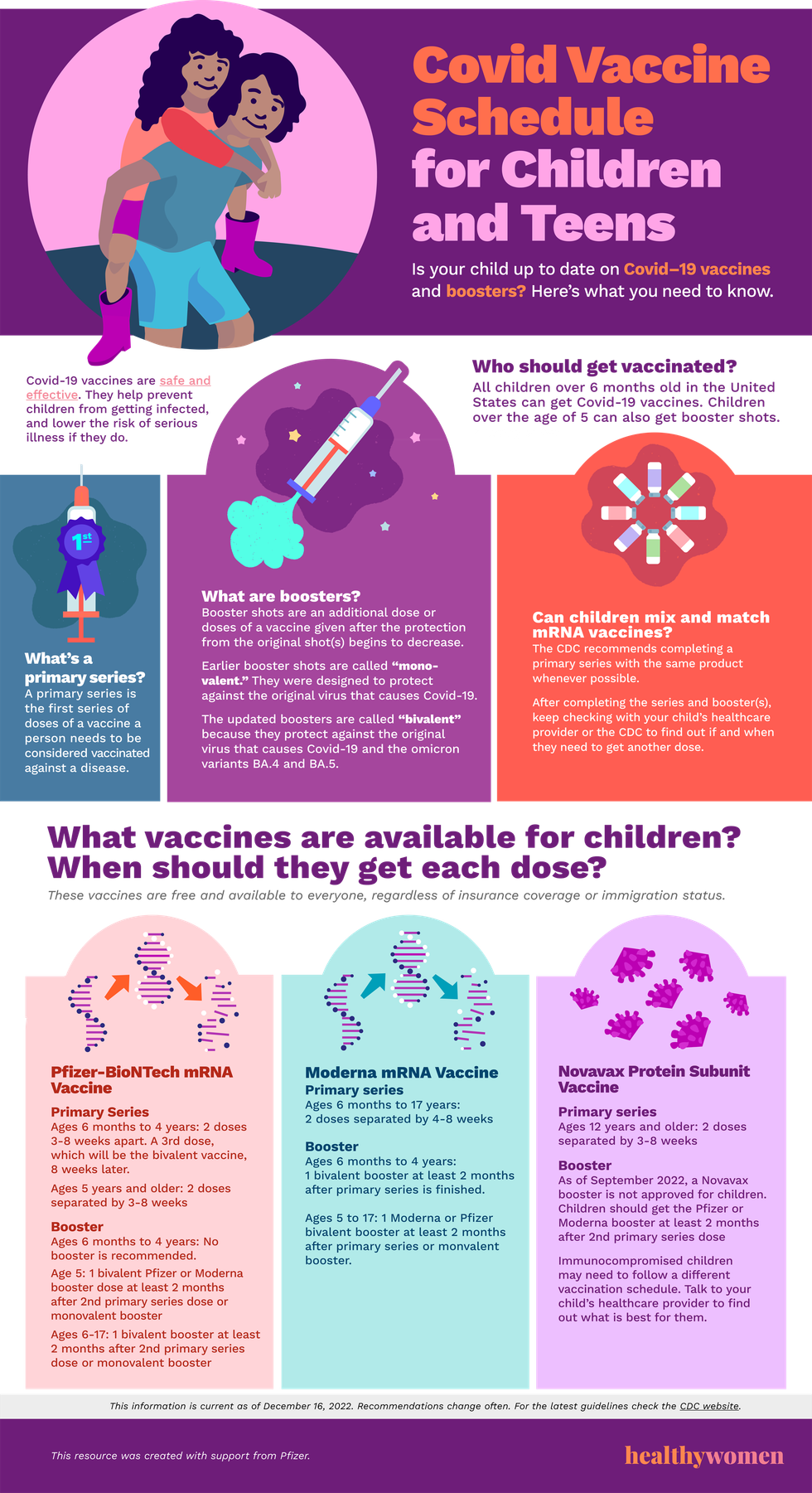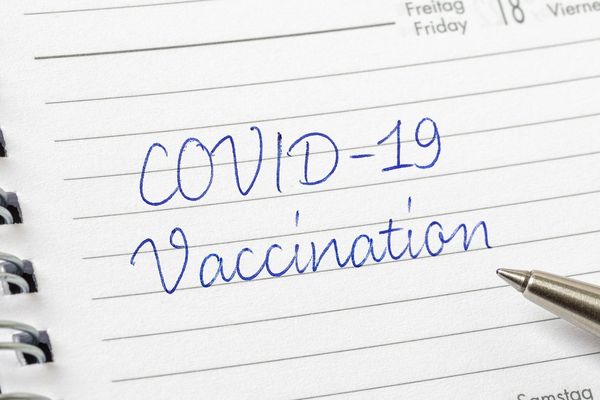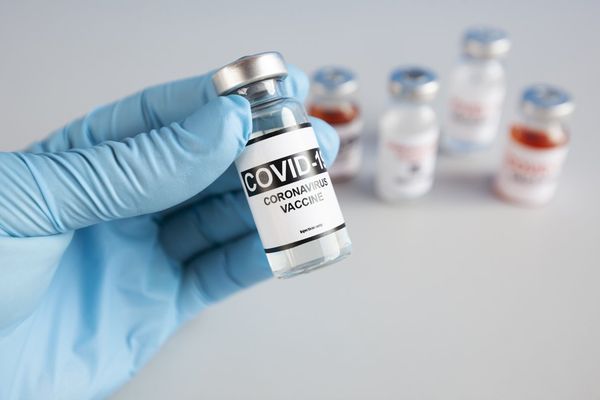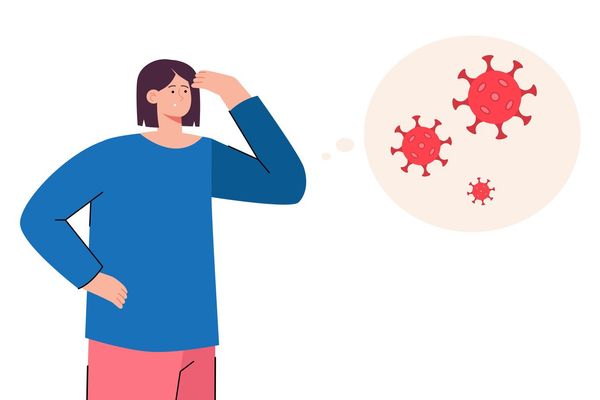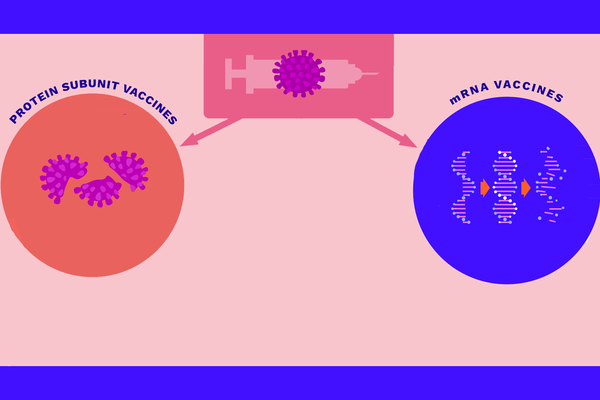Covid-19 vaccines are safe and effective. They help prevent children from getting infected, and lower the risk of serious illness if they do.
Who should get vaccinated?
All children over 6 months old in the United States can get Covid-19 vaccines. Children over the age of 5 can also get booster shots.
Primary series: the first set of doses of a vaccine needed to vaccinated against a disease
Booster shots: an additional dose or doses of a vaccine given after the protection from the original shot(s) begins to decrease.
- Earlier booster shots are called “monovalent.” They were designed to protect against the original virus that causes Covid-19.
- The updated boosters are called “bivalent” because they protect against the original virus that causes Covid-19 and the omicron variants BA.4 and BA.5.
What vaccines are available for children?
- Pfizer-BioNTech mRNA vaccine (6 months and up) and booster (5 years and up)
- Moderna mRNA vaccine
- Novavax protein subunit vaccine (12 years and up)
These vaccines are free and available to everyone, regardless of insurance coverage or immigration status.
Can children mix and match mRNA vaccines?
The CDC recommends completing a primary series with the same product whenever possible.
After completing the series and booster(s), keep checking with your child’s healthcare provider or the CDC to find out if and when they need to get another dose.
When should children get each dose?
Pfizer-BioNTech
Primary Series
- Ages 6 months to 4 years
- 2 doses of the Pfizer monovalent vaccine, 3-8 weeks apart
- A 3rd dose, which will be the bivalent vaccine, 8 weeks later
- Ages 5 years and older
- 2 Pfizer doses separated by 3-8 weeks
Booster
Ages 6 months to 4 years
No booster is recommended
Age 5
1 bivalent Pfizer booster dose at least 2 months after 2nd primary series dose or monovalent booster
Ages 6-17
1 Pfizer or Moderna bivalent booster at least 2 months after 2nd primary series dose or monovalent booster
Moderna
Primary series
- Ages 6 months to 17 years
- 2 doses separated by 4-8 weeks Booster
- Ages 6 months to 4 years
- 1 bivalent Moderna booster at least 2 months after primary series is finished
- Ages 5-17
1 Moderna or Pfizer bivalent booster at least 2 months after primary series or monovalent booster
Novavax
Primary series Ages 12 years and older
- 2 doses separated by 3-8 weeks
Booster
As of September 2022, a Novavax booster is not approved for children. Children should get the Pfizer or Moderna booster at least 2 months after 2nd primary series dose
Immunocompromised children may need to follow a different vaccination schedule. Talk to your child’s healthcare provider to find out what is best for them.
Information current as of December 16, 2022. Recommendations change often. For the latest guidelines, visit the CDC website .
This resource was created with support from Pfizer.
- A Mother’s Journey to Getting Her Children Vaccinated ›
- Getting Caught Up on Back-to-School Vaccines ›
- Covid Vaccine Schedule for Immunocompromised People - HealthyWomen ›
- Comparing the 3 Covid-19 Vaccines - HealthyWomen ›
- How to Access and Prioritize Your Vaccines - HealthyWomen ›


